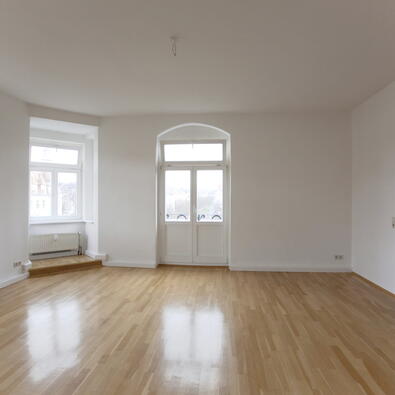
Resizing Your Life: A Guide to Downsizing for Empty Nesting and Retirement
As the kids spread their wings and venture into the world, and retirement beckons with the promise of leisurely days, many individuals find themselves at a crossroads - their once bustling family home now feels a bit too spacious and overwhelming. Downsizing, the process of moving to a smaller, more manageable living space, becomes an enticing option for those embarking on the next chapter of their lives. In this blog, we'll explore the art of downsizing for empty nesters and retirees, delving into tips, tricks, pros, and cons to help you make an informed decision.

The Benefits of Downsizing
Downsizing brings with it a plethora of advantages that can greatly enhance your lifestyle during the empty nest and retirement phases.
Financial Freedom: One of the most compelling reasons to downsize is the potential for cost savings. Smaller homes generally come with lower property taxes, reduced utility bills, and decreased maintenance expenses, allowing you to allocate your resources to activities you truly enjoy.
Less Maintenance: More Freedom: As you bid adieu to the larger family home, you also bid adieu to extensive upkeep. A smaller space means less time spent on maintenance, freeing you up to pursue hobbies, travel, or simply relax.
A Streamlined Lifestyle: Downsizing encourages a decluttered existence. Embracing a minimalist approach means you only keep what you truly need and cherish, leading to a more organized and stress-free life.
Enhanced Social Opportunities: Moving to a smaller home or community geared towards retirees often results in increased social interactions. You'll likely find it easier to connect with like-minded individuals and engage in shared activities, fostering new friendships.

Tips and Tricks for Successful Downsizing
Downsizing can be an emotional journey, but these tips and tricks can help you navigate the process with ease.
Start Early: Give yourself ample time to go through your possessions and decide what to keep, donate, or recycle. Starting early alleviates stress and ensures thoughtful decision-making.
Prioritize Sentimental Items: While downsizing entails letting go of some possessions, make sure to keep items that hold sentimental value. These cherished mementos can bring comfort and joy in your new space.
Embrace Space-Saving Solutions: Invest in furniture with built-in storage, use vertical space effectively, and opt for multipurpose items to make the most of your smaller living area.
Digitalize Memories: Scan old photos and documents to reduce physical clutter while preserving precious memories.
Professional Help: Consider hiring a moving company to help through the process of settling in your new space and provide expert advice.

Potential Downsizing Drawbacks
While downsizing offers a multitude of benefits, it's important to acknowledge the potential drawbacks as well.
Emotional Attachment: Letting go of a family home can be emotionally challenging, especially if it holds decades of memories. It's important to mentally prepare for this transition.
Space Constraints: Moving to a smaller space may require you to part with some possessions you're attached to. Be ready to make difficult decisions about what to keep and what to get rid of.
Adjustment Period: Adapting to a new living environment, neighborhood, and social circle may take time. Be patient and open to embracing change.
Downsizing is a transformative journey that can offer newfound freedom, financial relief, and enhanced quality of life for empty nesters and retirees. This transition is an opportunity to curate a space that truly reflects your values, passions, and aspirations for this exciting phase of life and College HUNKS Hauling Junk & Moving can help you navigate your move with confidence and ease. While challenges may arise, the potential for a simpler, more fulfilling lifestyle awaits those who embrace the art of rightsizing.
